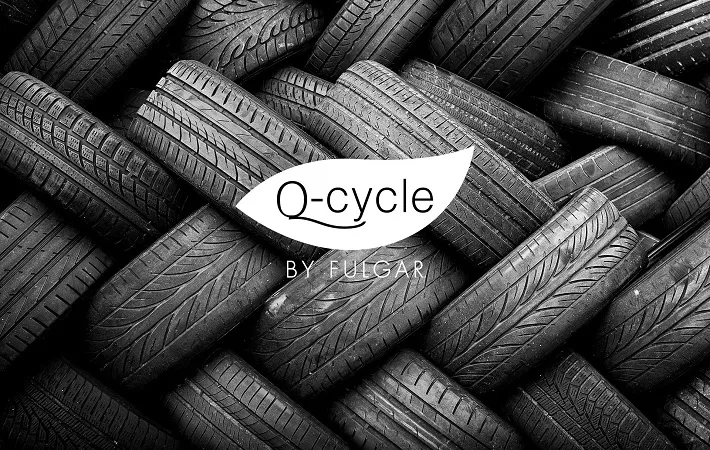As sustainability becomes more than just a buzzword in the fashion and outdoor gear industries, brands are continuously seeking innovative ways to minimize their environmental impact. One such brand that has consistently been at the forefront of eco-conscious design is Kathmandu, a leading outdoor apparel company renowned for its commitment to sustainability. The unveiling of its new jacket, made from recycled car tires, highlights the brand's dedication to pushing the boundaries of sustainable fashion. The Kathmandu Epiq SE jacket, which integrates end-of-life car tires into its material, represents an exciting evolution in how we think about upcycling and sustainable clothing. As environmental concerns shape the future of fashion, this new product is poised to capture the attention of both eco-conscious consumers and industry innovators alike. Follow us here at Why the Hyères Festival Remains an Important Launchpad for Gen Z Designers.
Kathmandu Brand
Founded in New Zealand in 1987, Kathmandu has grown into one of the world’s most recognized outdoor adventure brands, largely due to its deep-rooted environmental ethos. Over the years, Kathmandu has made sustainability a core component of its business strategy, incorporating eco-friendly practices across its product lines. The company’s focus has always been on creating high-quality, durable products that can withstand the elements while also addressing the environmental impact of manufacturing. From using recycled polyester to adopting fair trade-certified materials, Kathmandu has remained at the forefront of responsible production in the outdoor gear industry. With a brand identity centered around exploration and adventure, it is no surprise that Kathmandu continues to innovate, and the introduction of a jacket made from recycled car tires represents the brand’s latest effort to merge functionality with environmental responsibility.
Related: Mulberry's Non-Exec Julie Gilhart Announces Departure
Related: Unilever sells Russian business
Epiq SE Jacket
The newly launched Kathmandu Epiq SE jacket is not just a milestone for the brand but for sustainable fashion as a whole. This jacket is part of Kathmandu’s Epiq series, known for its warmth, durability, and comfort, but what sets the SE version apart is its integration of Q-Cycle technology, a cutting-edge method of transforming end-of-life car tires into usable fabric. By using this technology, the Epiq SE jacket diverts waste from landfills and gives a second life to materials that would otherwise contribute to pollution. Despite being made from unconventional sources, the jacket retains all the qualities Kathmandu customers expect — superior insulation, water resistance, and a sleek, modern design. This blend of sustainability with high-performance outdoor wear makes the Epiq SE jacket not only an essential piece for adventurers but also a symbol of the future of eco-conscious fashion.
What is Q-Cycle Technology?
Q-Cycle technology is the innovative process at the heart of the Epiq SE jacket. Developed to address the growing issue of waste from the automotive industry, Q-Cycle technology allows end-of-life car tyres to be repurposed into high-performance materials. The process involves breaking down tires into their raw components, which are then re-engineered into fibers suitable for textile production. These fibers are not only strong and durable, but they also offer the same level of insulation and weather resistance as traditional fabrics used in outdoor gear. What makes Q-Cycle technology particularly significant is its potential to revolutionize how the fashion industry approaches material sourcing. By taking a waste product and transforming it into something functional and stylish, Q-Cycle technology aligns perfectly with Gen Z's demand for sustainable, circular fashion practices.
Karinda Robinson
Karinda Robinson, the Sustainability Manager at Kathmandu, has been a driving force behind the brand’s sustainable innovations. She played a crucial role in the development and launch of the Epiq SE jacket, and her vision has been instrumental in ensuring that Kathmandu continues to lead by example in environmental stewardship. Robinson is passionate about finding new ways to reduce waste in the fashion and outdoor gear industries, and her work on the Q-Cycle technology reflects her commitment to pushing the boundaries of what’s possible. In an interview about the launch of the Epiq SE jacket, Robinson stated, “At Kathmandu, we believe that sustainability isn’t just a trend, but the future of all production. Our goal with the Epiq SE jacket is to demonstrate that you don’t need to compromise on quality or performance to make a sustainable product.” Her leadership has been pivotal in making Kathmandu one of the most respected brands in the world of eco-friendly apparel.
Trends
The fashion industry has seen a significant shift toward sustainability in recent years, and consumers are becoming more conscious of the environmental footprint of their purchases. This is particularly true for outdoor and adventure brands, where customers not only rely on the functionality of their gear but also expect the products to align with their values regarding nature and environmental conservation. Kathmandu's decision to use recycled car tires in its Epiq SE jacket comes at a time when upcycling and circular fashion is gaining momentum. More and more brands are experimenting with non-traditional materials in their products, and the success of these innovations reflects a broader trend sustainably. Consumers are no longer satisfied with just buying products; they want to know the story behind them, including how they’re made and their impact on the planet.
Future Outlook
Looking ahead, the success of the Kathmandu Epiq SE jacket could very well signal a new era in how we think about material innovation in fashion. The use of Q-Cycle technology opens the door for other companies to explore similar methods of upcycling, not only in apparel but across industries. As the demand for sustainable products continues to rise, more brands will likely adopt eco-friendly materials as part of their core offerings. For Kathmandu, the launch of this jacket is just the beginning. The brand’s commitment to sustainability means that we can expect even more breakthroughs in the future, with the possibility of incorporating other recycled materials into their designs. The future of outdoor gear is one where environmental impact is minimized, and performance remains paramount.


